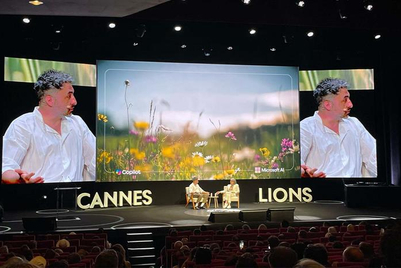
UK broadcaster Channel 4's research series Beyond Z has underpinned an emerging behaviour we see among Gen Z. The paradox between tolerance and the desire to "cancel".
The broadcaster found that a proportion of young people agree that people deserve to be "cancelled" if they don't share their worldview, while simultaneously reporting ultra-progressive views regarding gender and multiculturalism.
This is a seemingly contradictory notion that partly distinguishes Gen Z from other generations – an inconsistency between liberal and illiberal views.
Young people are ultra-woke. This means they are hyper-aware of and actively attentive to important societal facts and issues. This cohort in pop culture is distinguished as activist warriors refusing to accept and actively fighting against racial and social justice issues that have plagued our society for too long.
These societal demands extend into their brand preferences. Young people expect to see brands incorporate authentic social activism into the fabric of their DNA and smell woke-washing a mile away.
In our research, we have found 75% of Gen Z buy brands that share their values, which shows that the generation is more motivated than others to buy products that reflect their social and cultural ideologies.
It's worth caveating that most young people can't always afford to purchase based on their moral compass but, as their spending power increases over time, this will change.
This Gen Z-driven societal shift has resulted in brands often feebly attempting to virtual signal to win with youth and keep up with the collective consciousness.
Social justice versus intolerance of others
Without a doubt, Gen Z is the protagonist of the social revolution redefining the workplace, work and life balance, the destigmatisation of archaic ideas of sex and gender, and shutting down and cancelling voices and brands opposing their social change agenda. But where does social justice stop and intolerance of others start?
It can be argued that a healthy society requires diverse ideas and thinking from every corner of ideological beliefs. The middle way between polarised opinions can have progressive efficacy and offer a social balance that avoids forcing fringe groups underground and destabilising society.
The idea of permanently removing people from society because they don't share the same view contradicts our judicial system's principles of fair trial and restitution.
Arguably, this behaviour shares the tenets of liberal fascism – a cohort of liberal idealists that hold a certain ideological standpoint they believe is best for society, dogmatically imposing these ideas on others for their own good.
The illiberal progressive mindset of a proportion of Gen Z echoes this, potentially undermining the socially progressive standpoint most commonly associated with the cohort.
Will this generation dominate the social discourse, shutting down non-conformist opinions resulting in trammelled social expression that perpetuates social destabilisation? Or will Gen Z frontier a paradigm shift in social progression, unlike any other generation?
For me, it's the latter. Yes, there are illiberal progressive views among Gen Z that can disproportionately dominate the social narrative, but it certainly doesn't apply to all young people.
This online antisocial behaviour could be a desire for self-promotion through reputation sabotage or social tribalism as young people struggle to climb the social status economy, rather than a genuine opposition to liberalism.
Furthermore, young people are universally conflicted in their formative years as they try to learn how to navigate the world while attempting to fit in and individuate.
Gen Z are an unprecedented positive force for change that is open-minded and intolerant much like everyone else.
Luke Hodson is founder of Nerds



.jpg&h=334&w=500&q=100&v=20250320&c=1)



.png&h=334&w=500&q=100&v=20250320&c=1)



.png&h=334&w=500&q=100&v=20250320&c=1)



.jpg&h=268&w=401&q=100&v=20250320&c=1)

.png&h=268&w=401&q=100&v=20250320&c=1)
.png&h=268&w=401&q=100&v=20250320&c=1)

